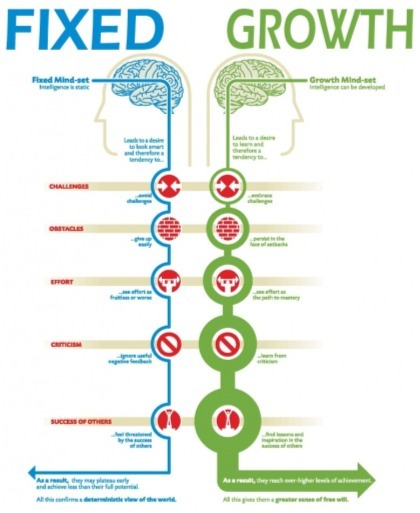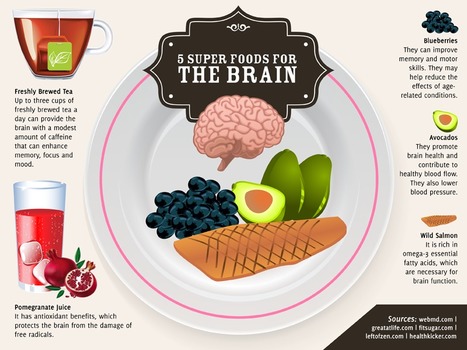A new study makes it clear what growth in standardized test performance doesn’t buy us: cognitive ability.
Get Started for FREE
Sign up with Facebook Sign up with X
I don't have a Facebook or a X account
 Your new post is loading... Your new post is loading...
 Your new post is loading... Your new post is loading...

Mary Cunningham's curator insight,
April 7, 2013 12:54 PM
This fits really well with the SIM work that has been happening! It is a nice visual representation of the Dwek work.
Jaimee's curator insight,
March 5, 2014 10:06 AM
People/Students do not go for the challenges because they are scared of failure. With failure come consequences fro example low grades. Anyone can say the grade doesn't matter it is what you learned, however without the grade you can lose out on getting accepted into colleges or fail a class.
This article is about about how one can reach success by having a growth mindset. By gaining and having the drive to gain more knowledge. |
Kaley Hannon's curator insight,
September 16, 2013 2:12 AM
A study done in Germany argues that it's not the children who have the high IQ's that are growing most in their math skills but it is the ones who are most motivated. Through the research conducted they collected evidence that shows that the even though the kids with the higher IQ's started at a higher level when it came to understanding math the children who reported that they were motivated to learn math were the ones who picked up the math skills faster. 
Terri Goldson's curator insight,
February 1, 2014 3:21 PM
Unfortunately the intelligence quotient has always been the standard measure used within education and beyond, that is said to determine our ability to learn. We know through common observation, that premise is not always an indicator of success. Other very important factors play a role in everyone’s ability to navigate through life. Factors such as motivation, determination, perseverance and other intangibles are important influences. Tapping into those essential elements will make learning more meaningful for all learners. Knowledge IS Power!
Chaeyeon Seo's curator insight,
November 9, 2014 10:00 AM
Motivation is important not only in math but in every part of work |















I am concerned about the massive growth of standardized test as a tool to motivate learning and improvement in education. These also even seem to be an intimidation tool used against staff and school systems these days far more than an formative evaluation tool. The best evaluations for both formative and summative are by far real life performance based and the real process is always iterative and ongoing. That is everything in learning is iterative with exception of life and death training that must be passed by a 100% success standard and then maintained at that.
Are standardized test a distraction from the sometimes messy nature of real learning and curiosity which causes people to want to learn something? Are we taking the valuable lessons of trial and error corrections totally out of the learning equation for fear of failure when everything hangs on a standardized test passing score?